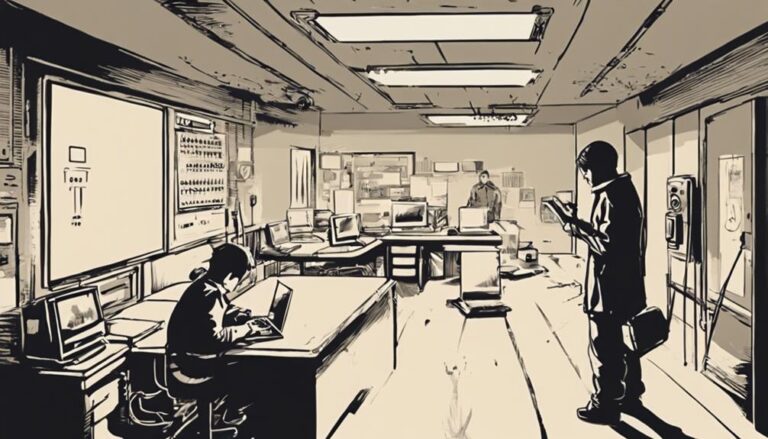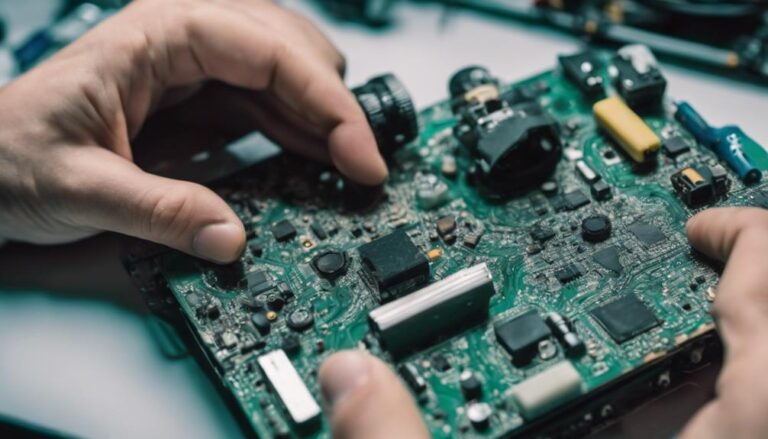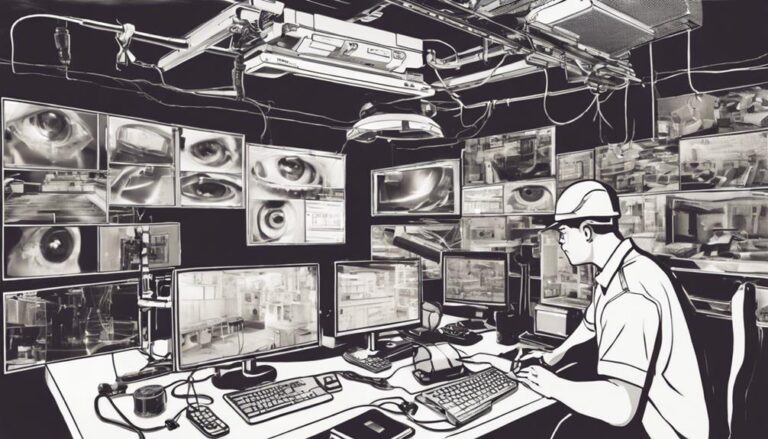When you compare GW Security to Lorex, you’re looking at distinct advantages. GW Security excels in advanced technology, offering high-definition cameras with innovative features like motion detection and superior zoom. In contrast, Lorex is user-friendly, providing a variety of reliable options that cater to both residential and commercial needs. Pricing-wise, GW Security tends to be more budget-friendly, while Lorex may involve a higher initial investment but offers easier future upgrades. Consider warranty and customer support as well; GW Security provides longer warranties. Each brand has unique strengths tailored to different requirements, and you might find more insights that help you decide.
Overview of GW Security
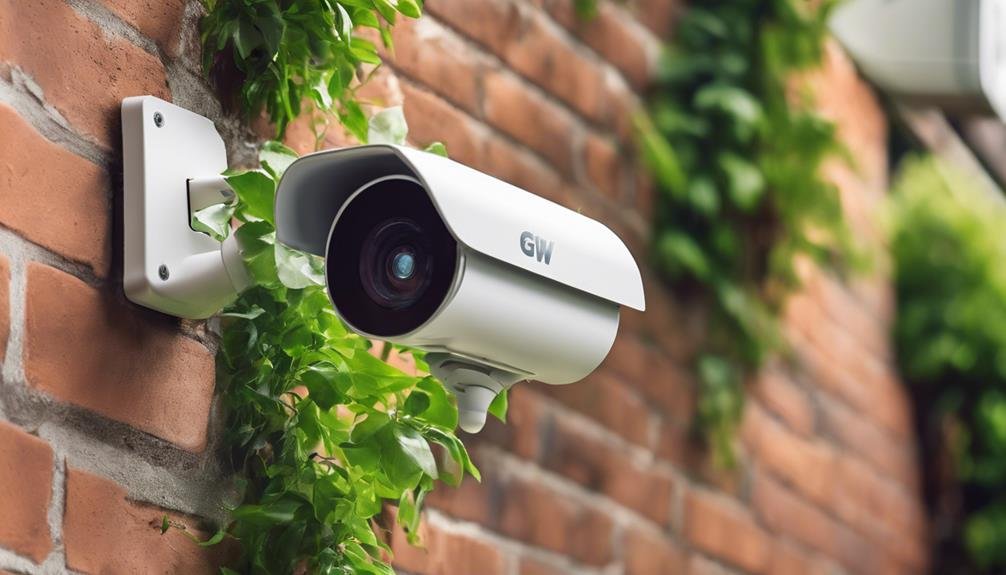
GW Security is a company specializing in advanced surveillance solutions, offering a range of products designed to meet diverse security needs. Their portfolio includes high-definition cameras, digital video recorders, and extensive monitoring systems, ensuring users can monitor their environments effectively. One of the key aspects of GW Security is their focus on GW Security innovations, which incorporate the latest technology to enhance surveillance capabilities.
These innovations not only improve image clarity but also include features like motion detection, night vision, and remote access, enabling users to maintain a vigilant watch over their properties. In addition, GW Security integrations with various smart devices and platforms allow for a seamless user experience.
Overview of Lorex
Lorex is a well-established brand in the surveillance market, known for its extensive range of security cameras and systems that cater to both residential and commercial needs. With a focus on providing reliable and advanced security solutions, Lorex technology integrates high-definition video capabilities, allowing users to monitor their properties with clarity.
One of the standout aspects of Lorex is its commitment to user-friendly design. Most systems come equipped with intuitive interfaces, making it easier for you to navigate settings and access footage. Additionally, many Lorex features include remote viewing options through mobile apps, enabling you to keep an eye on your premises from anywhere.
Lorex also emphasizes versatility in its offerings, providing a variety of camera types, including indoor, outdoor, wired, and wireless options. This flexibility allows you to tailor your security setup to meet specific requirements. Moreover, the use of advanced motion detection and night vision capabilities enhances the effectiveness of Lorex systems, ensuring thorough surveillance coverage. Overall, Lorex stands out as a brand that combines cutting-edge technology with practical features, empowering you to secure your environment effectively.
Key Features Comparison
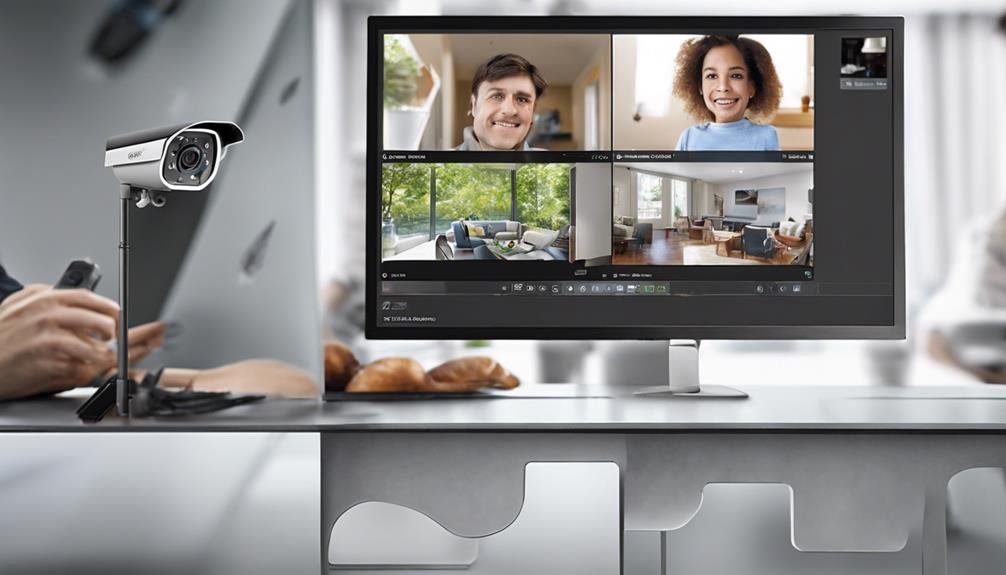
When comparing GW Security and Lorex, it’s essential to evaluate camera quality and overall value for your investment. You’ll want to assess the resolution, low-light performance, and additional features each brand offers. Additionally, analyzing the pricing structure will help you determine which option provides better long-term value based on your specific needs.
Camera Quality Analysis
While both GW Security and Lorex offer impressive camera options for surveillance needs, a closer look at their key features reveals distinct differences in camera quality. GW Security typically utilizes advanced lens technology, allowing for enhanced clarity and detail in various lighting conditions. Their cameras often incorporate high-quality optical lenses that provide superior zoom capabilities and wide-angle views, making them suitable for expansive areas.
On the other hand, Lorex emphasizes different sensor types, particularly those designed to capture high-definition images even in low-light environments. Their use of CMOS sensors often results in improved image processing and reduced noise, which can be vital for nighttime surveillance. Additionally, Lorex cameras frequently feature infrared capabilities, enhancing visibility during darkness.
When comparing these brands, it’s important to evaluate your specific surveillance requirements. If you prioritize zoom and field of view, GW Security’s lens technology might suit you better. Conversely, if low-light performance is your primary concern, Lorex’s sensor types could provide the edge you need. Ultimately, understanding these camera quality differences can help you make an informed choice tailored to your surveillance goals.
Price and Value Comparison
In evaluating the price and value of GW Security and Lorex, it’s important to reflect not just the initial cost but also the long-term benefits and features each brand offers. A competitive analysis reveals that while both brands have their pros and cons, understanding market trends can guide your decision-making.
Here are four key factors to take into account:
- Initial Cost: GW Security typically offers more budget-friendly options, while Lorex may require a higher upfront investment.
- Feature Set: Lorex often includes advanced features like two-way audio and cloud storage, which might justify the price differential for some users.
- Warranty and Support: GW Security usually provides a more extended warranty period, which can enhance long-term value.
- Scalability: Lorex systems tend to be easier to expand, a significant consideration if you plan to upgrade your setup in the future.
Ultimately, the decision hinges on your specific needs and preferences. By focusing on these aspects, you can guarantee that you invest wisely in a security system that aligns with your freedom and safety goals.
Video Quality and Performance
When evaluating video quality and performance, you’ll want to compare resolution and clarity between Gw Security and Lorex systems. Additionally, consider each brand’s night vision capability, as this can greatly impact surveillance effectiveness after dark. Finally, analyzing streaming performance will provide insights into how well each system maintains video quality during real-time monitoring.
Resolution and Clarity
Video quality is a critical factor in evaluating the performance of security camera systems, particularly when comparing GW Security and Lorex. You’ll want to take into account several aspects of resolution and clarity to make an informed choice:
- Resolution: Higher resolution provides more detail, making it easier to identify subjects.
- Lens Technology: The quality of lens technology affects how well the camera captures light and detail.
- Image Processing: Advanced image processing can enhance video clarity, especially in varying light conditions.
- Field of View: A wider field of view allows you to monitor larger areas without compromising detail.
Both GW Security and Lorex utilize high-definition formats, but the effectiveness of their lens technology can vary. GW Security often emphasizes their cutting-edge lens technology, which can yield sharper images, while Lorex focuses on robust image processing capabilities to guarantee clarity under different conditions. Ultimately, your choice may hinge on whether you prioritize resolution or the overall quality of image processing. For the best results, take into account how each brand’s strengths align with your specific security needs, guaranteeing you achieve the clarity and detail necessary for effective surveillance.
Night Vision Capability
Evaluating security camera systems also requires a close look at their night vision capabilities, especially since a notable portion of incidents occurs in low-light conditions. Both Gw Security and Lorex utilize infrared technology to enhance their night vision performance, but there are differences worth noting.
When you assess low-light performance, consider the specifications of each system. Gw Security typically employs advanced infrared sensors, allowing for clearer images in complete darkness. This means you can expect a more reliable visual feed, even when lighting is minimal. In contrast, Lorex cameras may offer decent night vision but often struggle in extremely low-light scenarios, resulting in grainier footage.
Moreover, the range of night vision varies between brands. Gw Security often boasts longer infrared ranges, providing broader coverage of your property. If you’re prioritizing security in darker environments, this aspect is essential for you.
Ultimately, your choice should hinge on how vital low-light performance is for your security needs. The effectiveness of infrared technology in these cameras can greatly impact your overall surveillance experience, ensuring you maintain the freedom to protect your property, day or night.
Streaming Performance Analysis
Evaluating streaming performance in security camera systems is vital to guaranteeing you get clear, uninterrupted footage in real-time. When comparing Gw Security and Lorex, consider the following factors that directly impact your viewing experience:
- Streaming Latency: This refers to the delay between the camera capturing footage and you viewing it. Lower latency guarantees a more responsive monitoring experience.
- Bandwidth Requirements: High-definition video streams demand significant bandwidth. If your home network can’t support these needs, you may experience buffering or degraded quality.
- Resolution Quality: The clarity of the video feed is critical. Both systems offer various resolutions, but you’ll want to choose one that aligns with your surveillance needs.
- Network Stability: A reliable connection helps maintain consistent streaming performance. Fluctuations in your network can lead to interruptions or pixelation.
Pricing and Value
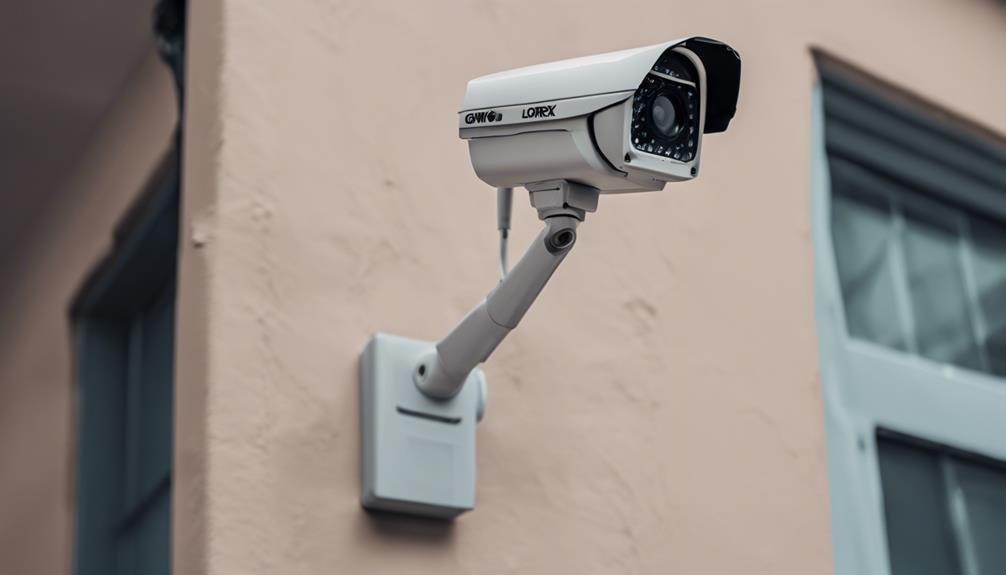
When comparing the pricing and value of GW Security and Lorex, it’s important to evaluate not only the upfront costs but also the long-term benefits and features each brand offers. GW Security generally positions itself as a cost-effective solution, often appealing to users with budget considerations. Their systems may come at a lower initial price, but you should analyze whether they meet your specific surveillance needs over time.
On the other hand, Lorex products tend to carry a higher price tag, reflecting advanced technology and features. If you’re looking for reliability and extensive warranties, this brand may represent a better long-term investment, despite the higher upfront costs.
It’s essential to reflect on how each system aligns with your requirements for performance and durability. For instance, if your surveillance needs are basic, GW Security might suffice. However, if you require higher resolution or smart features, Lorex’s investment might be justified. Ultimately, weighing the total cost of ownership against your specific needs will help you determine which brand offers the best value for your situation.
Installation Process
The installation process for GW Security and Lorex systems can vary considerably, affecting your overall experience and satisfaction. Understanding the differences in installation can help you choose the right system for your needs. Here’s a breakdown of what to take into account:
- Installation Tools: Both systems require specific tools, but GW Security often demands additional equipment for ideal setup.
- Wire Management: Effective wire management is essential. Lorex tends to have more streamlined cabling options, reducing clutter.
- User-Friendliness: GW Security may present a steeper learning curve, while Lorex often offers more intuitive installation guides.
- Flexibility: If you prefer a DIY approach, Lorex typically provides more flexible options for installation, allowing for easier adjustments.
When installing either system, pay close attention to your environment and how the layout may influence wire management. Ensuring you have the right installation tools on hand can save you time and frustration. Ultimately, the choice between GW Security and Lorex may come down to which installation process aligns best with your preferences and skills. The smoother the installation, the quicker you can enjoy the benefits of your security system.
Customer Support and Warranty

Reliability in customer support and warranty services can greatly influence your overall satisfaction with GW Security and Lorex systems. Both brands offer varying levels of support and warranty options that can impact your decision-making process. GW Security provides standard customer support through multiple channels, including phone and email, ensuring you can reach them when issues arise. Their warranty options often extend up to three years, which can enhance customer satisfaction by providing peace of mind regarding product longevity.
On the other hand, Lorex also offers robust customer support, including live chat and extensive online resources for troubleshooting. Their warranty options generally range from one to two years, depending on the product, which may appeal to customers seeking shorter-term commitments. However, the perceived value of these warranty options may vary based on individual needs and expectations.
Ultimately, it is important to assess how each brand’s customer support and warranty options align with your particular requirements. Understanding these factors will enable you to make an informed decision, ensuring you choose a system that meets your expectations for both service and reliability.
Final Recommendations
Choosing between GW Security and Lorex ultimately comes down to your specific needs and priorities. Both brands offer robust surveillance solutions, but understanding their strengths can help you make a more informed decision. Here are some key factors to take into account:
- User Reviews: Check online platforms for genuine user feedback. GW Security tends to receive praise for its reliability, while Lorex often impresses with its user-friendly interface.
- Brand Reputation: Both brands have established themselves in the security industry, but GW Security is known for its advanced technology and high-quality equipment, whereas Lorex is recognized for its affordability and accessibility.
- Product Range: Reflect on the variety of products each brand offers. If you need specialized solutions, GW Security may have the edge. In contrast, Lorex provides a broader selection for general consumers.
- Warranty and Support: Evaluate the warranty length and customer support options. GW Security generally offers better warranties, which can be vital for long-term investment.
Frequently Asked Questions
What Are the Main Differences in Software Compatibility Between GW Security and Lorex?
When considering software compatibility, you’ll find varying degrees of software integration and user interface design. Some systems offer more flexibility in third-party applications, while others prioritize streamlined, user-friendly experiences, affecting overall usability and functionality.
Do GW Security and Lorex Offer Mobile App Features for Remote Monitoring?
Both brands offer mobile app usability for remote monitoring. Their remote access features allow you to view live feeds and receive alerts, enhancing your experience. You’ll find varying degrees of functionality, depending on the specific models.
Are There Any Subscription Fees for Cloud Storage With GW Security or Lorex?
When considering cloud storage, you’ll find varying pricing models. Some systems may have subscription fees, while others might offer free tiers. It’s crucial to evaluate the costs against your storage needs and desired features.
How Do GW Security and Lorex Handle Firmware Updates for Their Systems?
When considering firmware updates, you’ll find that both systems emphasize firmware reliability. Their update frequency varies; however, staying informed about each brand’s approach guarantees you maximize your system’s performance and security over time.
Can GW Security and Lorex Systems Integrate With Smart Home Devices?
Both systems offer varying degrees of smart home integration, but device compatibility can differ. You’ll want to assess specific models to guarantee they meet your smart home ecosystem’s requirements for seamless operation and control.

